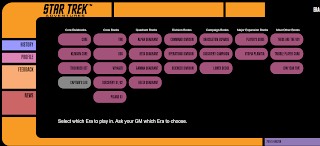Andrea Hairston's Master of Poisons is set in a fantastic version of West Africa besieged by an ever-worsening climate crisis. Poison winds blow from the east, gradually eroding and poisoning farmland, cities, and even the ocean. This is Hairston's first full-on epic fantasy, but her writing style is as vivid and at times bewildering as in her earlier novels. Short chapters of 4-6 pages are written from the point of view of Djola, an exiled member of the ruling Council of the Arkhysian Empire, or Awa, a girl who is in training to become a griot or storyteller.
Djola is on a quest to end the climate crisis; he searches for a magical cure that will prevent the collapse of the Arkhysian Empire. He loses his family, and eventually gains terrible magical powers. Awa is sold by her impoverished peasant farmer father to the itinerant Green Elders, who are gender nonconforming travelers, shadow-warriors, and mystics who live in the wilds to the east of the Empire. Awa has the ability to enter the Smokelands, which are a layered, spiritual otherwhere which faces an ecological crisis of its own. Gradually the stories of Djola and Awa come together as ecological, social, and political crises converge.
This novel was the June selection for the North Country Gaylaxians Book Club. As far as I know, I'm the only book club member who finished the book. Hairston's style in each of her novels is fragmented and demanding. The payoff doesn't happen quickly. In my case, I had to get to around page 250 before I felt certain I would read all 507 pages of the story. However, I am glad that I did!
***
One of the recurrent challenges for Hairston's characters is whether - and when - to use violence. They are trying to save their world from poison sands and from opponents who are only too willing to use violence (conventional or magical) to expand their power and to "control" (and sometimes hide) the crises their world is facing.
Andreas Malm's How to Blow Up a Pipeline is no "Ecologist's Cookbook"; people who are looking for practical advice on how to carry out eco-sabotage won't find anything useful here. Instead, Malm presents an ethical argument for the use of violence by the environmental movement. His argument will be pretty familiar to people who were active in CISPES in the 1980s. For both the Central America solidarity movement, and for the Salvadoran revolutionary movement, there was a recognition of the need for strategies that broaden the movement (i.e., bring more people into active participation) and strategies that radicalize the movement (i.e., the adoption of bolder, more militant strategies and tactics that advance the movement and take political ground from the enemy).
While the environmental movement of the 1990s certainly had elements that espoused and used violence (in particular Earth First! and proponents of the reactionary ideology of Deep Ecology), by the 2000s, the environmental movement had largely eschewed such tactics. Malm's concern is that the environmental movement doesn't present a serious challenge to fossil capitalism and climate change; we won't be able to stop climate change unless activists "raise the stakes" through tactical use of violence.
The examples of violence he uses are symbolic protest actions such as damage to private property (for example, letting the air out of SUV tires, and then leaving a note for the driver warning them that they have a flat tire, and why) and sabotage of oil pipelines (such as drilling holes in the pipes). The latter tactic is very similar to sitting on railroad tracks serving the munitions industry, or hammering in the heads of missiles. We've seen this before, and it is somewhat surprising that there isn't more of this going on in the contemporary environmental movement.
Malm isn't talking about cyberattacks that temporarily or permanently damage polluting infrastructure, or targeted assassinations of corporate officers or board members of polluting industries, which is somewhat surprising as there is not much in his line of argument that would suggest that these kind of actions are not in line with radicalizing the movement in the way he suggests needs to happen.
***
Nick Estes' Our History Is The Future provides ample reason to carefully consider the ramifications of violent tactics for the environmental movement. Estes' book is partly a history of Dakota resistance to the Dakota Access Pipeline (DAPL), partly a history of the Dakota people and their struggle against European settler colonialism, over several centuries, and partly a history of indigenous social movements for human rights, treaty recognition, and environmental justice. Because so many frontline struggles for environmental justice today are happening on sovereign native land, and because U.S. settler colonialism has repeatedly shown no respect for native lives and sovereignty, and a great propensity to use violence and terrorism against native people, the struggles that indigenous activists have led against DAPL, the contemporary Line 3 project in Minnesota, and others are decidedly focused on using non-violent tactics.
Estes documents just how much force and violence police, paramilitaries, and the oil and construction industries have directed against native communities and activists. One can only imagine the repression that would occur if indigenous activists actually used Malm's methods in their environmental activism. This is something Malm's book fails to address in any way.










